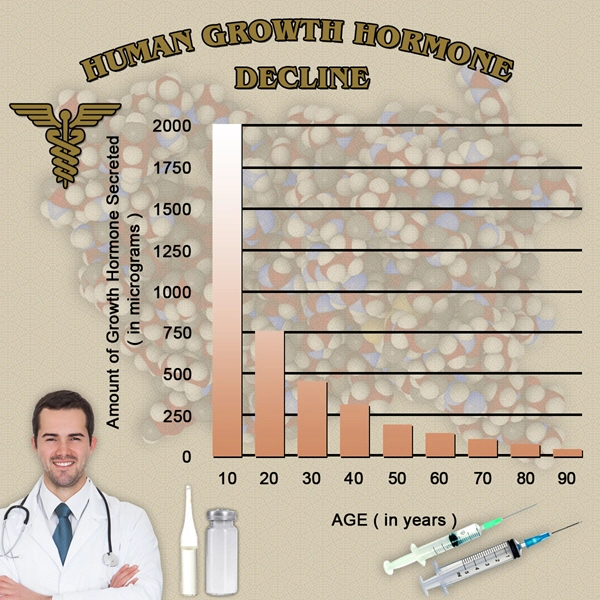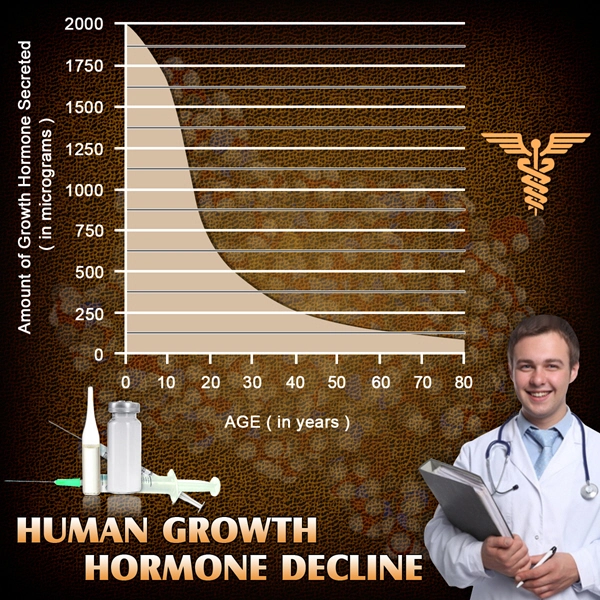Introduction to Chemotherapy-Induced Alopecia
Chemotherapy, a cornerstone of cancer treatment, often leads to a distressing side effect known as chemotherapy-induced alopecia (CIA). This condition, characterized by severe hair loss, can significantly impact the psychological well-being of patients. For American males undergoing chemotherapy, the prospect of losing hair can be particularly daunting, affecting their self-esteem and overall quality of life. This article explores innovative strategies to protect chemotherapy patients from the distressing effects of severe hair loss.
Understanding Chemotherapy-Induced Alopecia
Chemotherapy agents target rapidly dividing cells, which unfortunately include hair follicles. As a result, hair loss typically begins within a few weeks of starting treatment and can be complete in some cases. The extent of hair loss varies depending on the type of chemotherapy drugs used, the dosage, and individual patient factors. For many American males, the loss of hair is not just a physical change but a visible reminder of their battle with cancer, making the development of protective strategies crucial.
Scalp Cooling: A Promising Approach
One of the most effective methods to prevent CIA is scalp cooling, also known as cold cap therapy. This technique involves lowering the temperature of the scalp before, during, and after chemotherapy sessions. The cold temperature constricts blood vessels in the scalp, reducing the amount of chemotherapy drugs that reach the hair follicles. Studies have shown that scalp cooling can prevent hair loss in up to 70% of patients. For American males, this non-invasive approach offers hope and a sense of control over their treatment journey.
Pharmacological Interventions
In addition to scalp cooling, researchers are exploring pharmacological interventions to mitigate CIA. Minoxidil, a drug commonly used for treating male pattern baldness, has shown promise in reducing hair loss when used in conjunction with chemotherapy. Another promising agent is AS101, which has demonstrated the ability to protect hair follicles from the toxic effects of chemotherapy drugs. While these treatments are still under investigation, they represent a potential breakthrough for American males seeking to maintain their hair during cancer treatment.
Nutritional and Lifestyle Considerations
Maintaining a healthy diet and lifestyle can also play a role in minimizing hair loss. American males undergoing chemotherapy are encouraged to consume a balanced diet rich in vitamins and minerals essential for hair health, such as iron, zinc, and vitamin D. Additionally, avoiding stress and ensuring adequate rest can help support overall well-being and potentially reduce the severity of CIA. While these measures may not prevent hair loss entirely, they can contribute to a more positive treatment experience.
Psychological Support and Coping Strategies
The psychological impact of hair loss should not be underestimated. For many American males, losing hair can lead to feelings of vulnerability and diminished self-worth. It is essential for healthcare providers to offer psychological support and coping strategies to help patients navigate this challenging aspect of their cancer journey. Support groups, counseling, and resources for wigs or hairpieces can provide valuable assistance and reassurance during this time.
Future Directions in CIA Research
Ongoing research into the mechanisms of CIA and the development of new protective strategies offers hope for the future. Innovations such as topical treatments, gene therapy, and advanced scalp cooling technologies are on the horizon. For American males facing chemotherapy, these advancements represent a beacon of hope, promising a future where the fear of severe hair loss no longer overshadows the fight against cancer.
Conclusion
Chemotherapy-induced alopecia remains a significant concern for American males undergoing cancer treatment. However, with the advent of scalp cooling, pharmacological interventions, and supportive care, there are now more options than ever to mitigate this distressing side effect. By staying informed about the latest developments and working closely with healthcare providers, patients can take proactive steps to protect their hair and maintain their dignity throughout their cancer journey.

- Unveiling the Silent Culprit: The Connection Between Scalp Infections and Male Hair Loss in America [Last Updated On: February 25th, 2025] [Originally Added On: February 25th, 2025]
- Exploring Medical Wigs: A Vital Solution for Hair Loss in American Males [Last Updated On: March 1st, 2025] [Originally Added On: March 1st, 2025]
- Examining the Complexities: Unraveling the Medical Implications of Hair Loss [Last Updated On: March 2nd, 2025] [Originally Added On: March 2nd, 2025]
- Understanding the Link Between Thyroid Disorders and Hair Loss: Causes, Diagnosis, and Management [Last Updated On: March 3rd, 2025] [Originally Added On: March 3rd, 2025]
- Advancements in Hair Loss Treatments and Impact on Men's Health [Last Updated On: March 4th, 2025] [Originally Added On: March 4th, 2025]
- Understanding Male Hair Loss: Causes, Diagnosis, and Treatment Options in the US [Last Updated On: March 5th, 2025] [Originally Added On: March 5th, 2025]
- Understanding and Managing Pediatric Male Hair Loss: Causes, Diagnosis, and Treatment [Last Updated On: March 6th, 2025] [Originally Added On: March 6th, 2025]
- Evaluating Over-the-Counter Hair Loss Treatments: Effectiveness and Considerations for Men [Last Updated On: March 7th, 2025] [Originally Added On: March 7th, 2025]
- Comprehensive Guide to Holistic Hair Loss Treatments for American Men's Well-Being [Last Updated On: March 8th, 2025] [Originally Added On: March 8th, 2025]
- Unlocking the Genetics of Hair Loss: Insights, Treatments, and Future Management Strategies [Last Updated On: March 9th, 2025] [Originally Added On: March 9th, 2025]
- Chemotherapy-Induced Hair Loss in American Males: Causes, Coping, and Regrowth Strategies [Last Updated On: March 12th, 2025] [Originally Added On: March 12th, 2025]
- Unraveling the Link Between Stress and Hair Loss in American Males: A Comprehensive Medical Insight [Last Updated On: March 12th, 2025] [Originally Added On: March 12th, 2025]
- Understanding Hormonal Influences on Male Hair Loss: A Comprehensive Guide [Last Updated On: March 13th, 2025] [Originally Added On: March 13th, 2025]
- Debunking Hair Loss Myths: Facts, Causes, and Effective Treatments for American Men [Last Updated On: March 15th, 2025] [Originally Added On: March 15th, 2025]
- Understanding Hair Loss: Types, Causes, and Effective Treatments for American Males [Last Updated On: March 17th, 2025] [Originally Added On: March 17th, 2025]
- Monogenic Hair Loss in American Males: Genetic Insights and Management Strategies [Last Updated On: March 17th, 2025] [Originally Added On: March 17th, 2025]
- Alopecia Universalis: Understanding, Treating, and Coping for American Males [Last Updated On: March 17th, 2025] [Originally Added On: March 17th, 2025]
- Allergies and Hair Loss in American Males: Understanding the Indirect Connection [Last Updated On: March 17th, 2025] [Originally Added On: March 17th, 2025]
- Hair Loss in American Men Linked to Increased Heart Disease Risk: Emerging Evidence [Last Updated On: March 19th, 2025] [Originally Added On: March 19th, 2025]
- Topical Treatments for Hair Loss: Efficacy, Options, and Professional Guidance [Last Updated On: March 19th, 2025] [Originally Added On: March 19th, 2025]
- FDA-Approved Medications: Combatting Hair Loss in American Men [Last Updated On: March 19th, 2025] [Originally Added On: March 19th, 2025]
- Diabetes and Hair Loss: Understanding Causes and Management Strategies for American Men [Last Updated On: March 19th, 2025] [Originally Added On: March 19th, 2025]
- Understanding Male Hair Loss: Genetic, Hormonal, and Lifestyle Factors [Last Updated On: March 20th, 2025] [Originally Added On: March 20th, 2025]
- Hair Loss in American Males: Causes, Surgical Options, and Management Strategies [Last Updated On: March 21st, 2025] [Originally Added On: March 21st, 2025]
- Telogen Effluvium: Causes, Symptoms, and Management in American Men [Last Updated On: March 21st, 2025] [Originally Added On: March 21st, 2025]
- Hair Loss in American Men: Psychological Impacts and Coping Strategies [Last Updated On: March 21st, 2025] [Originally Added On: March 21st, 2025]
- Managing Male Hair Loss During Partner's Pregnancy: Causes and Strategies [Last Updated On: March 22nd, 2025] [Originally Added On: March 22nd, 2025]
- Understanding Hairline Recession: Causes, Impacts, and Treatment Options for American Men [Last Updated On: March 22nd, 2025] [Originally Added On: March 22nd, 2025]
- Innovative Hair Loss Treatments for American Men: Stem Cells, Gene Therapy, and More [Last Updated On: March 22nd, 2025] [Originally Added On: March 22nd, 2025]
- Hair Loss Solutions: Inspiring Case Studies and Treatment Advances for American Men [Last Updated On: March 23rd, 2025] [Originally Added On: March 23rd, 2025]
- Autoimmune Disorders and Hair Loss: Impacts and Treatments for American Males [Last Updated On: March 23rd, 2025] [Originally Added On: March 23rd, 2025]
- Innovative Treatments and Technologies Transforming Hair Loss Solutions for American Males [Last Updated On: March 23rd, 2025] [Originally Added On: March 23rd, 2025]
- Hair Loss in Young Males: Causes, Impacts, and Treatment Options [Last Updated On: March 23rd, 2025] [Originally Added On: March 23rd, 2025]
- Hair Cloning: A Revolutionary Approach to Permanent Hair Loss Solutions [Last Updated On: March 23rd, 2025] [Originally Added On: March 23rd, 2025]
- Aromatherapy for Hair Loss: Exploring Benefits and Limitations for American Males [Last Updated On: March 23rd, 2025] [Originally Added On: March 23rd, 2025]
- Antidepressants and Hair Loss: Insights and Management Strategies for American Males [Last Updated On: March 24th, 2025] [Originally Added On: March 24th, 2025]
- Anemia and Hair Loss in American Men: Causes, Prevalence, and Management Strategies [Last Updated On: March 24th, 2025] [Originally Added On: March 24th, 2025]
- Drug-Induced Hair Loss: Mechanisms, Common Culprits, and Management Strategies [Last Updated On: March 24th, 2025] [Originally Added On: March 24th, 2025]
- Anabolic Steroids and Hair Loss: Mechanisms, Impacts, and Mitigation Strategies in American Males [Last Updated On: March 24th, 2025] [Originally Added On: March 24th, 2025]
- PCOS in Men: Understanding Symptoms, Diagnosis, and Hair Loss Treatment Options [Last Updated On: March 24th, 2025] [Originally Added On: March 24th, 2025]
- Androgenetic Alopecia: Genetic Insights and Emerging Treatments for Hair Loss [Last Updated On: March 24th, 2025] [Originally Added On: March 24th, 2025]
- Medical Hair Loss in American Men: Causes, Impacts, and Holistic Management Strategies [Last Updated On: March 25th, 2025] [Originally Added On: March 25th, 2025]
- Postpartum Hair Loss in American Males: Causes, Symptoms, and Management Strategies [Last Updated On: March 25th, 2025] [Originally Added On: March 25th, 2025]
- Thyroid Disorders and Hair Loss in American Males: Causes, Diagnosis, and Treatment [Last Updated On: March 26th, 2025] [Originally Added On: March 26th, 2025]
- Understanding and Managing Male Hair Loss in Aging American Men [Last Updated On: March 26th, 2025] [Originally Added On: March 26th, 2025]
- Shock Loss After Hair Transplant: Understanding and Managing Temporary Hair Loss in American Males [Last Updated On: March 26th, 2025] [Originally Added On: March 26th, 2025]
- Male Pattern Baldness: Advances in Treatment and Future Prospects [Last Updated On: March 26th, 2025] [Originally Added On: March 26th, 2025]
- Diagnosing Hair Loss in American Men: Traditional and Advanced Techniques [Last Updated On: March 26th, 2025] [Originally Added On: March 26th, 2025]
- Trichotillomania in American Males: Understanding, Impact, and Treatment Options [Last Updated On: March 26th, 2025] [Originally Added On: March 26th, 2025]
- LLLT: A Promising Non-Invasive Solution for Hair Loss in American Males [Last Updated On: March 26th, 2025] [Originally Added On: March 26th, 2025]
- Anabolic Steroids and Hair Loss: Risks, Mechanisms, and Mitigation Strategies [Last Updated On: March 26th, 2025] [Originally Added On: March 26th, 2025]
- Hair Extensions and Permanent Hair Loss: Risks for American Males [Last Updated On: March 26th, 2025] [Originally Added On: March 26th, 2025]
- Hair Dyes and Hair Loss in American Males: Current Insights and Precautions [Last Updated On: March 26th, 2025] [Originally Added On: March 26th, 2025]
- Hair Follicle Miniaturization: Causes, Symptoms, and Treatments for American Males [Last Updated On: March 26th, 2025] [Originally Added On: March 26th, 2025]
- Immune System Disorders and Hair Loss in American Males: Causes and Treatments [Last Updated On: March 27th, 2025] [Originally Added On: March 27th, 2025]
- AI Revolutionizes Male Pattern Baldness Treatment: Personalized, Effective Solutions [Last Updated On: March 27th, 2025] [Originally Added On: March 27th, 2025]
- Vitamin Deficiencies and Hair Loss: Insights for American Men's Hair Health [Last Updated On: March 27th, 2025] [Originally Added On: March 27th, 2025]
- Post-COVID Hair Loss: Causes, Symptoms, and Management Strategies for American Males [Last Updated On: March 27th, 2025] [Originally Added On: March 27th, 2025]
- Hair Loss in American Males: Societal Views vs. Medical Facts and Holistic Management [Last Updated On: March 27th, 2025] [Originally Added On: March 27th, 2025]
- PRP Therapy: A Promising Non-Surgical Solution for Hair Loss in American Men [Last Updated On: March 27th, 2025] [Originally Added On: March 27th, 2025]
- Rogaine: Benefits, Risks, and Considerations for American Men's Hair Loss Treatment [Last Updated On: March 28th, 2025] [Originally Added On: March 28th, 2025]
- Hair Loss in American Males: Causes, Diagnosis, and Comprehensive Management Strategies [Last Updated On: March 28th, 2025] [Originally Added On: March 28th, 2025]
- Scalp Psoriasis and Hair Loss: Impacts and Management for American Males [Last Updated On: March 29th, 2025] [Originally Added On: March 29th, 2025]
- High Blood Pressure and Hair Loss: Insights for American Males [Last Updated On: March 30th, 2025] [Originally Added On: March 30th, 2025]
- Efficacy of Hair Loss Shampoos for American Men: Benefits and Limitations [Last Updated On: April 1st, 2025] [Originally Added On: April 1st, 2025]
- Menopause and Hair Loss in American Males: Understanding Andropause and Treatment Options [Last Updated On: April 3rd, 2025] [Originally Added On: April 3rd, 2025]
- Stem Cell Therapy: A Breakthrough in Treating Male Pattern Baldness [Last Updated On: April 3rd, 2025] [Originally Added On: April 3rd, 2025]
- Hair Loss in American Men: Psychological Impacts and Holistic Management Strategies [Last Updated On: April 5th, 2025] [Originally Added On: April 5th, 2025]
- Hair Loss After Weight Loss Surgery: Causes, Impacts, and Management for American Males [Last Updated On: April 6th, 2025] [Originally Added On: April 6th, 2025]
- Understanding Central Centrifugal Cicatricial Alopecia in American Males: Symptoms, Causes, and Management [Last Updated On: April 7th, 2025] [Originally Added On: April 7th, 2025]
- Hair Breakage vs. Loss: Causes, Differences, and Care for American Males [Last Updated On: April 7th, 2025] [Originally Added On: April 7th, 2025]
- Hair Loss and Mental Health: Navigating Psychological Impacts for American Men [Last Updated On: April 8th, 2025] [Originally Added On: April 8th, 2025]
- Minoxidil for American Men: Understanding, Using, and Maximizing Hair Regrowth [Last Updated On: April 8th, 2025] [Originally Added On: April 8th, 2025]
- Nutrition's Role in Combating Hair Loss: A Guide for American Men [Last Updated On: April 9th, 2025] [Originally Added On: April 9th, 2025]
- Protein Shakes and Hair Loss: A Comprehensive Guide for American Men [Last Updated On: April 9th, 2025] [Originally Added On: April 9th, 2025]
- GI Health and Hair Loss: Understanding the Link in American Males [Last Updated On: April 10th, 2025] [Originally Added On: April 10th, 2025]
- Lifestyle Changes to Combat Hair Loss in American Men: Diet, Stress, and Exercise [Last Updated On: April 11th, 2025] [Originally Added On: April 11th, 2025]
- Smoking and Hair Loss: Mechanisms, Evidence, and Preventive Strategies for American Males [Last Updated On: April 12th, 2025] [Originally Added On: April 12th, 2025]
- Weight Loss Diets and Hair Loss: Insights and Strategies for American Males [Last Updated On: April 13th, 2025] [Originally Added On: April 13th, 2025]
- Iron Supplements and Hair Loss Reversal in American Males: A Comprehensive Analysis [Last Updated On: April 13th, 2025] [Originally Added On: April 13th, 2025]



List of USA state clinics - click a flag below for blood testing clinics.
Word Count: 625



















































